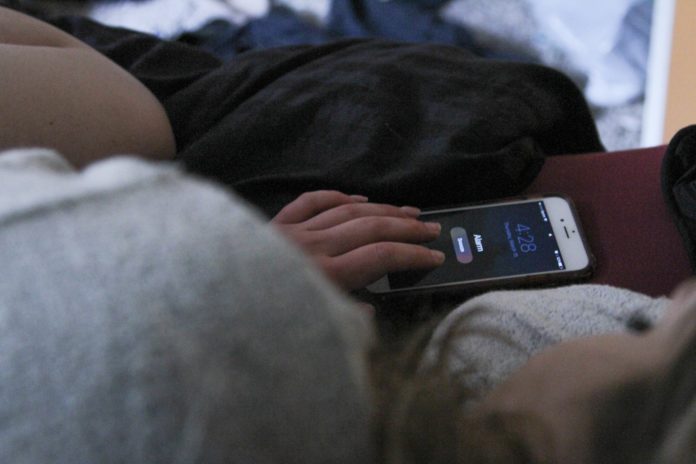
By Thomas Moran | Staff Writer
Baylor professor of neuroscience and psychology, Michael Scullin, said one of the most important ingredients for student success is something that students are often guilty of neglecting. In his opinion, the primary factor that may make or break a student’s success is their sleep schedule.
Though he was originally interested in memory, Scullin said he found himself becoming more interested in how sleep and memory are related, as well as memory consolidation during his graduate studies. Now, Scullin researches sleep in the Baylor Sleep Neuroscience and Cognition Laboratory.
“We do some work on how sleep changes with aging, how memory changes with aging,” Scullin said. “We do some work on how sleep affects not only memory but how we interact with one another and how we judge one another.”
Scullin’s research and studies have led him to several conclusions that are particularly pertinent to students.
The foremost sleep-related habit students should practice is sleeping for eight hours a night, Scullin said. Though it’s repeated and promoted constantly, regularly sleeping for eight hours is crucial to student success. Last minute cramming will not benefit students as much as a good night’s sleep.
“Go to bed,” Scullin said. “Semester after semester after semester I check my student’s sleep patterns and relate it to their test performance … When we compare the people who sleep more, who were sleeping eight hours a night, versus those who aren’t sleeping well, they end up performing about five points better on their final exam.”
Scullin is so convicted of this matter that he offers his student extra credit if they sleep for eight hours each night of finals week.
Pocahontas junior Haley Baltz said she gets eight hours of sleep every night.
“Sometimes, being in college makes it feel like no amount of sleep is enough,” Baltz said. “I never lose excessive sleep to study for an exam. One o’clock is my cutoff. I just test better if I go to bed at that time.”
Some students unintentionally sacrifice quality of sleep because of their cell-phone and laptop usage before bed, Scullin said. The frequency of light given off by most screens can stimulate the brain and decrease quality of sleep.
The National Sleep Foundation suggests that screens should be avoided for at least an hour before going to bed. If technology use is necessary, individuals should dim the screen and try to keep 14 inches between them and the screen.
Another problem some students face is restlessness, often caused by stressful schedules and busy lifestyles. If an individual is unable to fall asleep within 20 minutes of getting into bed, the best solution is to get out of bed rather than lying awake.
“What happens to a lot of students and people in general is that you get into bed and you’re not falling asleep and you start ruminating about not falling asleep,” Scullin said. “You start forming this implicit association between being in bed and not sleeping so that your brain actually becomes more alert when you get into bed because it is implicitly automatically thinking ‘I’m not going to be able to sleep.’”
Scullin said he suggests getting out of bed and engaging in mindless activity in the dark or in dim light until a feeling of sleepiness arises. Doing homework or even relaxing on the bed can be problematic because the brain will associate it with things other than sleep, Scullin said.
Another helpful tip to combat restlessness is writing a list of duties and obligations prior to going to bed, Scullin said.
“One thing that we discovered with college students is that if you direct them to right down everything on their to-do list, they fall asleep significantly faster,” Scullin said.
According to his studies, students get around six hours of sleep on average, Scullin said. Poor sleep patterns can result in brain damage and other issues.





